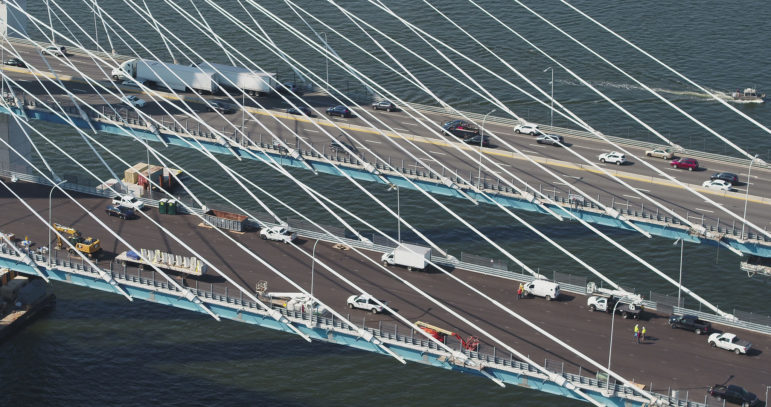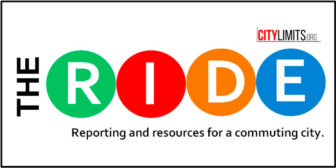
Office of the Governor
David Carlucci's district spans both ends of the Mario Cuomo Bridge.
Having died a lonely death in Albany a decade ago, congestion pricing came into 2019 with remarkable momentum, supported by a re-elected governor and key members of a new Democratic Senate majority. As the state budget session warmed up, the proposal appeared to be gaining speed. Advocates skillfully and steadily applied pressure. Even the mayor jumped aboard.
But congestion pricing is a huge deal, so it was probably never going to be that easy, and now it looks as if it won’t be.
There are, of course, ardent opponents who believe any congestion fee is regressive (even though drivers are wealthier than transit riders, on average) and unfair to neighborhoods underserved by transit (a problem that cannot be solved unless there’s money to provide more transit).
Now, even some supporters of the idea have suggested a slower process might be in order. Other supporters have questioned the governor’s numbers. The fact that congestion pricing is both a momentous policy step and merely part of what must be done to create a sustainable MTA makes for complicated arguments involving other revenue sources (an Internet sales tax, cannabis excise tax, pied-a-terre tax). And now groups of lawmakers from Long Island and areas north of the city have indicated they want a piece of the money set aside for commuter railways, which could mean less for trains and buses.
One of those lawmakers, Sen. David Carlucci, joined WBAI’s Max & Murphy Show on Wednesday to discuss his support for congestion pricing, but his concerns about how it will affect his constituents.
“Like the governor and mayor have said, this is something we need to do, and on its merits it makes a lot of sense. I want to see real congestion pricing. If we’re going to go through with this plan, it’s got to do what we say it’s going to do, which is decongest New York City,” he said. “You have to make sure the money that’s invested from congestion pricing is both invested and spent throughout the MTA system. That’s the Port Jervis Line, the Pasaic Valley Line, where the ability of commuters to get into New York is severely limited.”
“We have to make sure we make the investments throughout the MTA region if were going be successful,” Carlucci continued. “We also have to address the issue of double tolling. Right now, the governor and the mayor have this plan where the Lincoln and Holland Tunnels won’t be double-tolled, but if you’re taking George Washington or Tappan-Zee, you’re gonna be double tolled. We think that’s unfair to other residents of the MTA region.”
Asked where he’d like to see transit money invested north of the city, Carlucci said there is a need for greater station accessibility for disabled riders and more express trains.
Carlucci also discussed the need for more state education aid for districts that he says have been shortchanged in the past, the collapse of the Amazon deal and the cohesiveness of the Democratic conference. Listen to our conversation below, or hear the full show, which includes a chat with Council Speaker Corey Johnson about his own transit plan. (Please note that because of a technical problem, there is a periodic and very annoying beeping throughout the interview.)
Get the best of City Limits news in your inbox.
Select any of our free weekly newsletters and stay informed on the latest policy-focused, independent news.
Senator David Carlucci
Max & Murphy: Full Show of March 6, 2019









One thought on “Max & Murphy: Hudson Valley Lawmaker on Commuter Concerns About Congestion Pricing”
Missing from the Sen. Carlucci interview: he made clear he’d like to divert dollars collected in Manhattan to his district, but neither you nor Ben countered by asking Carlucci whether that should be accomplished by embiggening the congestion pricing zone to include all the counties served by the MTA. City Limits and Gotham Gazette cover municipal services that are delivered inequitably. One reason: too many of NYC’s dollars are already diverted to elsewhere in the state (and the nation). Yes, Carlucci’s vote is one of those needed to pass congestion pricing, but his demand is the problem, not the solution. It’s not sharing; it’s a shakedown.